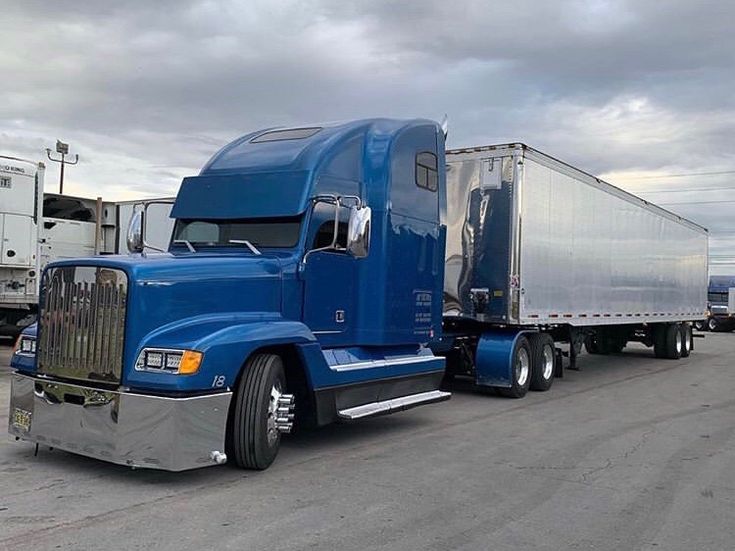When most carriers think about overlength permits, their minds jump to interstate highways, urban permitting authorities, or seasonal route restrictions. But if your load is headed through the 2,500+ rural counties and small municipalities across North America, the real challenge begins far off the beaten path.
At Reliable Permit Solutions, we specialize in decoding the complexities of rural transport permits—where compliance means more than checking boxes. It means understanding the nuanced, often undocumented rules of townships, counties, and remote jurisdictions where Google Maps won’t save you.
This isn’t your typical guide. We’re not here to rehash what you already know about oversize logistics in major cities. Instead, we’re focusing on the under-discussed world of overlength permit compliance in rural America—where township trustees may hold more sway than DOT officers, and one missed local bridge restriction can mean a costly detour, a fine, or worse, a denied move.
The Hidden Maze of County-Level Rules
Rural jurisdictions aren’t just mini-versions of big cities—they’re often governed by entirely different processes. Across states, county-level regulations can vary wildly. One county might allow overlength loads up to 100 feet with a basic form, while the neighboring county requires full documentation, weeks of lead time, and approval from three different departments.
To complicate matters, township transportation rules may supersede county guidelines altogether—especially in regions where unincorporated roads are maintained by independent districts or cooperatives. Some even require approval from local road authorities who don’t list requirements publicly but instead rely on informal approvals built on relationships and historical precedent.
Reliable Permit Solutions works daily with these unique scenarios. But even with permit experts on your side, carriers are still ultimately responsible for final route verification. That means knowing when state approval isn’t enough—because rural bridges, culverts, and easements often require local signoff.
Why Communication is Harder in the Middle of Nowhere
You’d think rural authorities would be easier to deal with—fewer people, less traffic, more straightforward systems. In reality, the opposite is often true. Small municipalities typically operate on limited budgets, skeleton staff, and outdated technology. Some use handwritten ledgers. Others only process applications via fax. Office hours might be Monday through Thursday, 10 a.m. to 2 p.m.—and don’t count on a call back if you’re not a familiar voice.
This means securing an overlength permit often requires more than filling out a form—it’s about relationships, local knowledge, and persistent follow-up. Our overlength permit agency spends as much time tracking down the right county clerk or township engineer as we do filing paperwork. Because sometimes, getting the green light requires knowing which staff member is back from vacation or what time the county road commissioner checks voicemails.
Infrastructure Unknowns: The Unmapped Obstacles
One of the most frustrating parts of rural transport planning is the sheer unpredictability of infrastructure. You won’t always find detours listed. Load restrictions on a bridge might not appear on state databases. Culverts that limit trailer swing might be unmarked. And signage? Often non-standard or missing altogether.
Then there’s seasonality. In the Midwest, for example, secondary roads may impose temporary load restrictions during freeze-thaw cycles. In the Southeast, heavy rains can wash out small bridges, closing them without warning. Reliable Permit Solutions accounts for all of this—by maintaining a growing, proprietary database of infrastructure quirks that most permit companies don’t even know exist.
Local Relationship Building: The Soft Skills That Matter
In rural counties, your best asset is often trust. Knowing how to talk to a county commissioner or sheriff’s deputy can make or break your move. It’s not uncommon for rural authorities to deny an application simply because they weren’t properly consulted, or because the carrier didn’t “follow local protocol”—which isn’t written down anywhere.
That’s why we encourage our clients to treat these relationships with the same importance as national compliance checks. We help introduce carriers to key decision-makers and offer strategies for ongoing rapport building in high-traffic rural regions.
Documentation Differences: It’s Not One-Size-Fits-All
Rural permitting often requires different supporting materials—everything from paper maps marked in pen to utility impact letters signed by hand. Sometimes, verbal approvals are given before the paperwork is even processed. Other times, the approval comes with special conditions noted only in a phone call.
At Reliable Permit Solutions, we help clients gather, format, and submit these materials in ways that align with each unique jurisdiction’s expectations. It’s a far cry from standardized digital applications in urban zones—but it’s a crucial piece of the rural overlength permit puzzle.
Plan Smarter for Rural Routes
Whether you’re hauling oversized loads through North Dakota oil fields, Appalachian logging roads, or the agricultural backroads of Central California, rural routes demand more than standard compliance. They require multi-jurisdictional awareness, proactive communication, and hyperlocal knowledge.
Working with a permit company like Reliable Permit Solutions ensures you’re not navigating these complexities alone. But always remember: the ultimate responsibility for compliance—and for confirming every detail of your overlength permit—rests with the carrier.
And in rural America, the details are everything.

